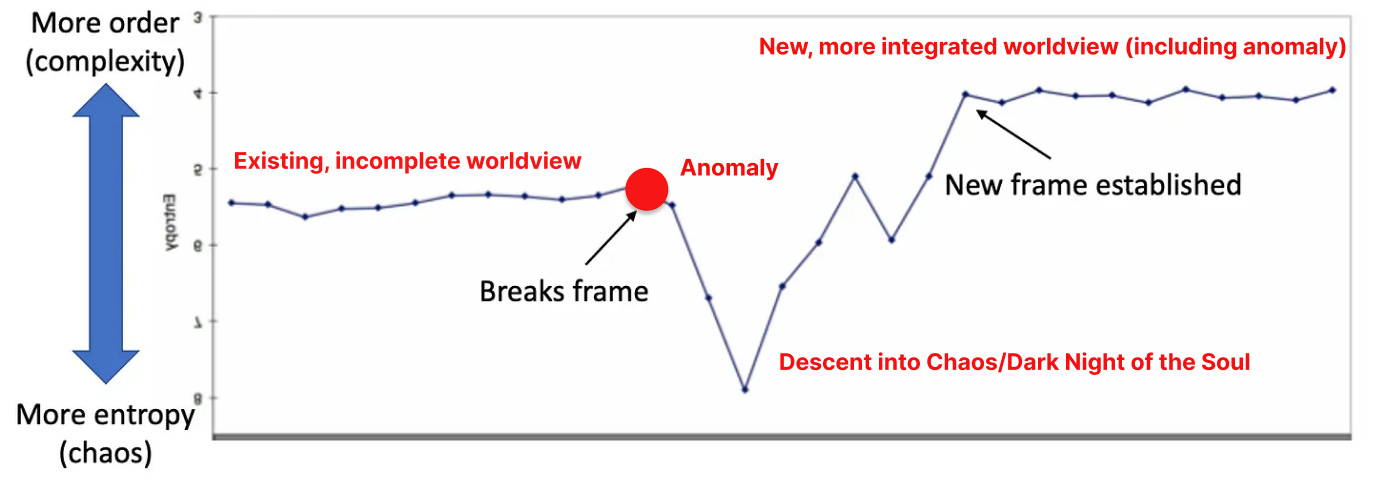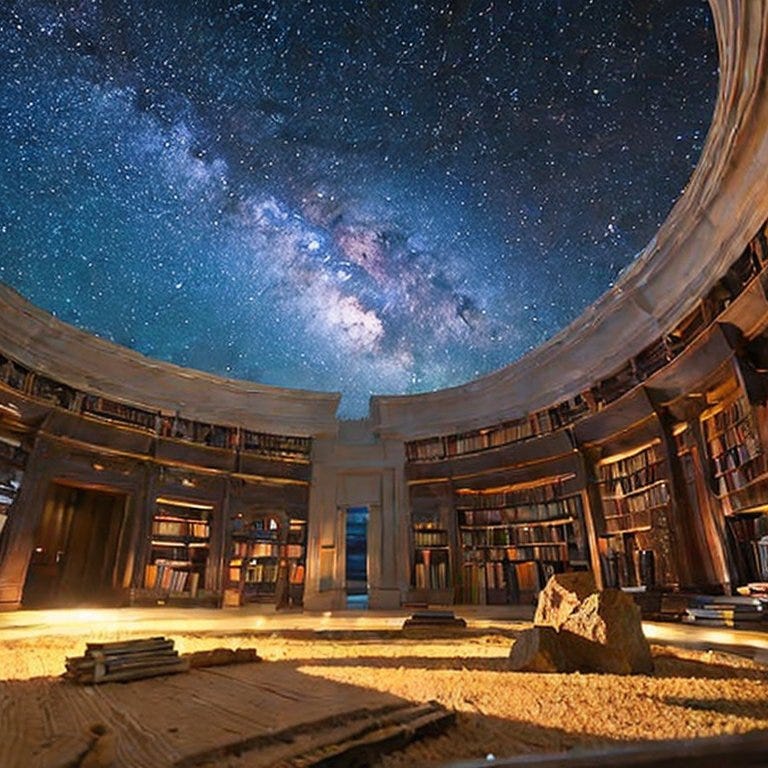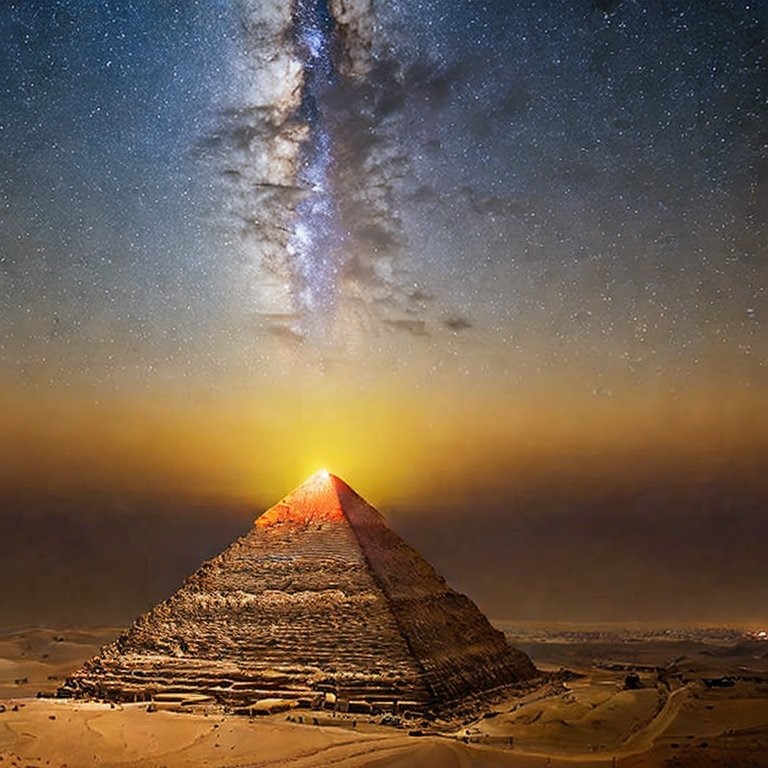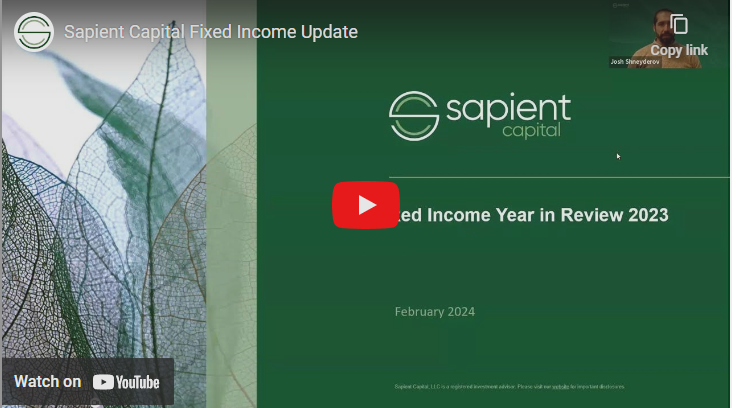Can a single idea change the world?
[17 minute read]
At the conclusion of my last piece I wrote that “Wisdom is the ability to pursue what you love and ignore what you don’t. Wealth provides that freedom.”
I’d go so far as to argue that it’s largely “the point” of acquiring wealth. There’s an incredibly strong connection, both scientific and anecdotal, between curiosity, success and happiness. I think the richest inheritance we can give our children is the full freedom to follow their own path.
If I could have any contribution to the world, it would be to make people trust the power of their own curiosity a little more.
The voluntary decision to strike out on a new path almost always requires a sacrifice of some sort. Making a leap of faith is even harder with your family strapped to your back. But every single person I’ve worked with, without exception, has taken a single step away from the situation that’s strangling them and another door has opened completely unexpectedly somewhere else. While knowing what you want to get away from is often straightforward, knowing where you want to go next isn’t.
A huge obstacle is we don’t even know what curiosity is. The dictionary definition tells us virtually nothing:
“Cu·ri·os·i·ty (noun): a strong desire to know or learn something.”
But… we don’t know where that “desire” comes from or what determines the “something” it’s directed towards.
In 2017, the controversial Canadian psychologist Jordan Peterson delivered a lecture unpacking the biblical story of Jacob’s Ladder. It makes his recent trajectory1 even more disappointing, because it remains one of the most remarkable things I’ve ever listened to. One passage has stuck with me even more than the others:
For [Carl] Jung, your interest was being manipulated, behind the scenes, by unseen forces that were associated with your characterological development across time. That was the manifestation of the Self. So the Self is the potential you, let’s say. The way it operates in the present is by gripping your interest and directing it somewhere. That’s part of the instinct of self-realization. It’s a mind-boggling idea. I think it’s correct; I can’t see how it can’t be correct. It doesn’t mean I understand it completely, but it certainly seems to be phenomenologically correct. I mean, the potential that you are has to manifest itself somehow, in the here and now. It has to. What better way than by directing your attention?
Exploring these unseen forces that “grip and direct your attention” has become the cornerstone of my life ever since.
Six years later, I think it’s a concept that holds the potential to turn the whole world upside down.
Anomalies Remake The World
An anomaly describes the appearance of a phenomenon that conflicts with an established worldview. If the anomaly is proven to be correct, science makes progress when it updates its model to incorporate the new information.

An extremely appropriate real-life example is Dr. Mona Sobhani’s recent experience. She was a rationalist neuroscientist, until her mother’s intuitive gifts correctly anticipated the tragic murder of one of her professors. This threw Mona’s scientific worldview into such chaos that she’s dedicated the last few years to researching “psi phenomena”. This describes features of consciousness that seem to defy our current understanding of time and space. She has since found that supporting evidence is surprisingly abundant and robust. But it’s largely rejected, or even stigmatised, by mainstream science. Our current model cannot explain the anomalies, so often refuses to incorporate them.
I have experienced anomalies of my own.
One morning in October 2017, I was putting the finishing touches on the draft of a book about the Hero’s Journey. Something suddenly shifted inside me. A sense of bliss filled every pore of my body. It was euphoria, nirvana! I lost my inner monologue; I was simply going about my day with no narration. As I went outside onto 6th Avenue, the trees appeared to emit a faint orange glow. All my senses were dramatically heightened, which was utterly overwhelming in Manhattan.
At the same time, I experienced a series of strange synchronicities. I called my sister to tell her I was having what felt like an “awakening experience.” I rambled on about how the whole world consists of a fine balance of order and chaos, a concept I had recently been reading about in M. Waldrop’s book Complexity. She then sent me a photo of cufflinks she’d bought for me a few days before. “Order” was written on one cuff and “chaos” on the other. That same week, a British man called… Tom Morgan tied himself to a bundle of helium balloons and floated around South Africa at a height of 8,000 feet (yes, really). Several people sent me the link to the story just as I felt like I was floating through the atmosphere myself.
Around that time I was also in contact with a lovely man in Stockholm. I’d met him for a brief afternoon a years before, but we found ourselves having oddly similar experiences thousands of miles apart.
One of the strangest sensations was that time no longer felt entirely linear. I had a deep sense of certainty that some things were true now and would continue to be true later. If I said something that disagreed with these truths, the area around my heart physically hurt. I had a hazy view of my future path.
Everything I thought I knew about how time and space worked had been challenged to its core.
As my world plunged into chaos, the psychiatrists told me I’d had a psychotic break, and the mystics told me I’d had a spiritual awakening. I now believe I’d fleetingly flipped to being right-hemisphere dominant. This meant I was much more directly connected to the “flow of the world” than before.
After a pretty horrific dark night experience, I have slowly incorporated this anomaly into my life with incredibly positive results.
What’s beyond fascinating is the possibility that my weird experience may reflect a scientific reality. An anomaly significant enough to change our entire collective worldview would have to be both bizarre and scientifically robust.
What’s The Next Anomaly?
As a curious generalist, I’m drawn to ambitious “theories of everything.” Nature doesn’t divide itself into biology, physics or chemistry, so why should we silo our own interests? Moreover, a good theory of everything should be able to explain where we fit into it as individuals.
I’ve never been particularly interested in quantum physics. Not only is it well above my intelligence level, it was never clear how it would ever be relevant to my daily life.
One of the great mysteries of quantum physics is how entangled particles can somehow violate the known laws of time and space and interact instantaneously over large distances. It’s an empirical anomaly that violates our prevailing worldview.
I recently encountered a theory of everything from Ervin Lazlo, a Hungarian systems theorist. Legendary psychiatrist Stanislav Grof once said:
“Where Ken Wilber outlined what an integral theory of everything should look like, Laszlo actually created one.”
Laszlo’s theory introduced me to the concept of the “Akashic Field.” Consistent with many ancient spiritual traditions, it describes a universal information field that isn’t bound by the constraints of time and space. Like an infinite library, everything that has happened and might potentially happen is “saved.” This information resource is accessible to us under certain circumstances.

If information itself isn’t rigidly bound by time or space, that helps reconcile quantum coherence, synchronicities and the psi phenomena both Mona and I experienced.
This probably sounds ludicrous (as any anomaly should), until you reflect on the fact that we have no idea where some insights come from! We can obviously read things in books or use our five senses. But sometimes ideas just materialise in our heads; the sudden stroke of insight. A vast number of the world’s greatest scientific breakthroughs were received spontaneously.
I have a suspicion that the amount of work (essentially time and effort spent thinking about an idea), determines if you’ll get an answer to your question. Recall Richard Feynman’s advice for how to be a genius: keep a dozen of your favorite problems constantly present in your mind and wait for inspiration. As is common to most “a-ha!” moments, I personally receive these insights in non-ordinary states of consciousness, such as when I’m just waking up. Presumably the conscious self is more permeable to the information field during these times. Shaman and healers throughout human history have deliberately induced these states to act as conduits for new information.
What would the incorporation of this anomaly mean for our worldview? I believe it holds the potential to cause an overdue paradigm shift in consciousness. When? Quantum physics has been around for over a century, and Laszlo’s book was published 20 years ago. Predicting societal tipping points is impossible. That said, I am a firm believer that our most popular stories reflect shifts in our collective unconscious. Over the last five years there’s been an explosion in movies about time travel and the multiverse. In 2022, Marvel announced a five-year “Multiverse Saga” — comprising 16 films and multiple shows. This year’s Best Picture winner, Everything Everywhere All At Once, was explictly about manifesting our potential across multiverses. It’s as if we’re trying to articulate a mass unconscious impulse.
While we wait, this thesis still has a lot of practical value to offer you and me.
Towards Coherence and Complexity.
“In a nutshell, the universe has a direction and we are meant to participate in it. Not because it’s the “right” thing to do from an abstract, moralistic perspective, but because it’s the “optimal” thing to do from an evolutionary and cognitive perspective.”
-Brett Andersen
Science and spirituality are currently reuniting to return wonder, magic and meaning to the world. It may sound crazy, but incorporating Laszlo’s Akashic theory (or something like it) may help do just that. If you combine it with Peterson and Jung’s psychological insights, the potential for something truly remarkable emerges.
One idea that is currently unfolding across multiple areas of contemporary science is that the universe has a direction. It trends towards complexity.
Complex things have differentiated parts in an integrated whole. A healthy economy puts us each in positive-sum niches where we can maximise our differentiated gifts in service of the whole. We cooperate in pursuit of a shared goal. Laszlo calls this “coherence.”
As individuals, a coherent brain clearly differentiates its separate parts for tasks, while also integrating the whole.2 Both Peterson and Jung saw this as the different parts of your psyche coming together in pursuit of a common goal:
He [Jung] believed that psychotherapy could be replaced by a supreme moral effort. The Good, at which you aim, would be something approximating what you would be like if you manifested your full potential, and that you’d have a glimmering of what that full potential was. That would be the potential future you. He thought of people as four dimensional entities, essentially—that we’re stretched across time, and that you, as a totality across time, including your potential, manifested yourself, also, in the here and now. Part of what your potential manifested itself was something like the voice of conscience, or intuition. It’s an amazing idea. It’s an amazing idea! Because it’s like what you could be in the future beckons to you in the present, and it helps you determine the difference between good and evil. It’s a mind boggling idea. I think that it’s an idea you have to contend with.
Our brain’s right hemisphere is also associated with the quiet voice of conscience because it is largely non-verbal. It is also more directly connected to the flow, so it would produce the subtle intuition that we are deviating from the manifestation of our potential. Our right hemisphere also directs our exploratory attention; meaning one way this instinct towards our future potential may manifest in us is through our curiosity; what we’re attracted to. It also makes sense that following this path feels meaningful, and produces highly beneficial results in our life.
Lazlo’s theory would also suggest we’re being pulled towards complexity, and coherence, by a force, that’s somehow not entirely bounded by time. This inherent potential would reside in the Akashic field, with our freedom to orient towards an optimal path. Our “future selves” may indeed use our attention and passions to direct us towards manifesting our unique potential. We aim our curiosity at the “thing of highest value.” It pulls us together. If you ask the right questions about what is most meaningful to you, you might get the answers. That information will change you for the better.

The Akashic field theory may not end up being the anomaly that “flips” our culture, but it looks very much like the kind of idea that would. Modernity’s primary problem is relying on our limited individual intelligence to try and control the world around us. Laszlo believes the wider acceptance of the Akashic field would make us more empathetic and cooperative. It would also give us more scientifically-grounded faith in an optimal path for unleashing our own latent potential.
Related Watching/Listening/Reading
- Watch/Read/Listen. Ervin Laszlo’s lecture : Science and the Akashic Field, An Integral Theory of Everything (1 hour 25 minute listen). If you’re, cough, curious about Laszlo’s thesis, I’ve just read two books The Immutable Laws of the Akashic Field and Science and the Akashic Field: An Integral Theory of Everything. Both are also pretty short! A kind reader (thanks Will Oliver!) also sent me Laszlo’s 2003 lecture introducing the latter book. A good companion is Stan Grof’s talk, The Cosmic Game (1 hour 42 minute listen). Laszlo’s explanation is incredibly elegant, but that doesn’t make it correct. My ignorance on quantum physics means I can’t really assess the merits. I’d be curious what my readers think!
- Read. The Kekulé Problem by Cormac McCarthy (26 minute read). In a little moment of synchronicity, the writer Dylan O’Sullivan recently posted a 9 minute interview clip of Cormac McCarthy talking about the unconscious, just hours before the news of his death broke. McCarthy talks about the utterly mysterious nature of inspiration, and how much of it tends to happen overnight on “the night shift.”
- We dont know what the unconscious is or where it is or how it got there—wherever there might be.
In case you missed it, earlier this week I compiled the 7 best things I’ve watched, read or listened to in the last year.
The information provided is for educational and informational purposes only and does not constitute investment advice and it should not be relied on as such. It should not be considered a solicitation to buy or an offer to sell a security. It does not take into account any investor’s particular investment objectives, strategies, tax status or investment horizon. You should consult your attorney or tax advisor.
The views expressed in this commentary are subject to change based on market and other conditions. These documents may contain certain statements that may be deemed forward looking statements. Please note that any such statements are not guarantees of any future performance and actual results or developments may differ materially from those projected. Any projections, market outlooks, or estimates are based upon certain assumptions and should not be construed as indicative of actual events that will occur.
1 I have recorded a podcast with Camellia Yang going into detail about my broader reservations on many of his current ideas and rhetoric. But also my weird theory as to why this happened.
2 For a more detailed explanation see Brett Andersen’s YouTube lecture series.


